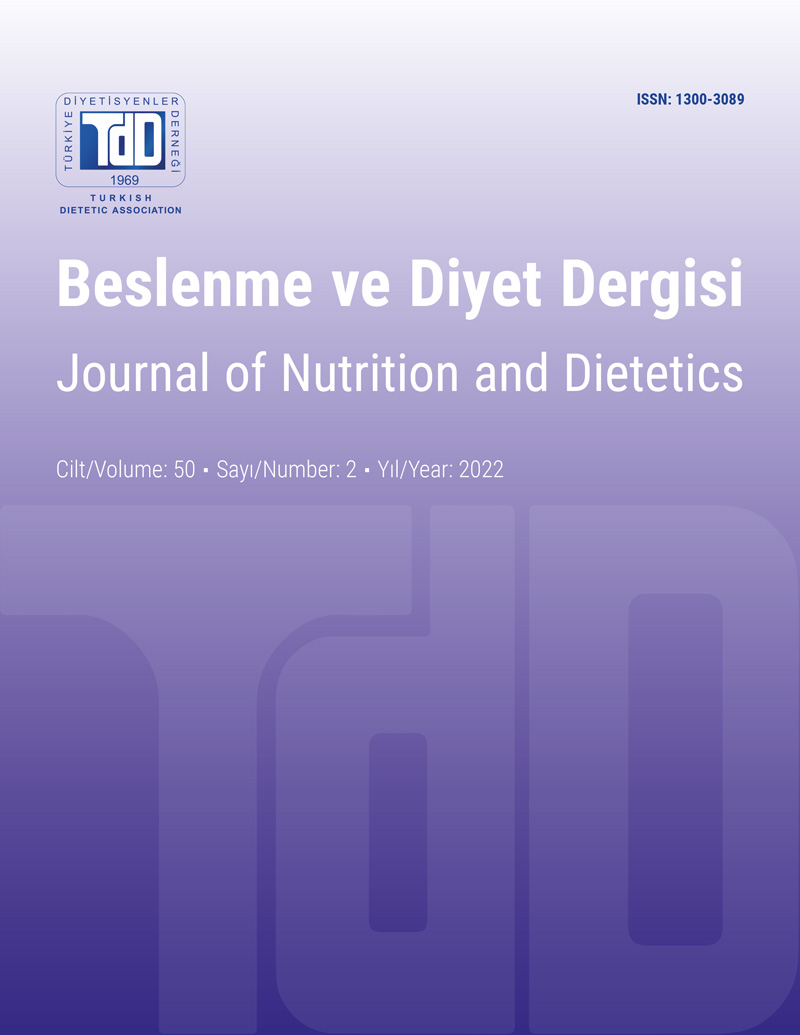Evaluation of the Relationship Between Nutrition Literacy and Health Literacy in Adults
DOI:
https://doi.org/10.33076/2022.BDD.1642Keywords:
Nutrition literacy, health literacy, adultAbstract
Aim: This study aims to determine the relationship between nutrition literacy (NL) and health literacy (HL) of adults.
Subjects and Method: This cross-sectional study included 450 individuals aged 18-65 years residing in Antalya. A questionnaire including socio-demographic characteristics, health status, nutritional habits, Turkish Health Literacy Scale-32, and the Evaluation Instrument of Nutrition Literacy on Adults was applied to the subjects by face-to-face interview technique and anthropometric measurements were taken.
Results: The mean age of the participants was 34.3±13.14 years. While more than half of them had inadequate (14.2%) and problematic-limited HL (37.6%), 87.3% of them were found to have adequate NL. Mean NL scores of women were found to be significantly higher than men (27.9±2.76; 26.5±3.32, p<0.001, respectively). Most of participants with adequate NL had bachelor/ postgraduate education (p<0.001). Individuals with adequate NL have significantly higher HL levels and scores than those with limited NL (p=0.001 and p<0.001, respectively). A weak positive correlation was found between HL and NL (r=0.262; p<0.05). In the multivariate model, however, subjects with inadequate HL had higher levels of inadequate NL (OR: 2.498; 95% CI: 1.284-4.859; p=0.007) and poor general nutritional knowledge (OR: 1.858; 95% CI: 1.151-2.998; p=0.011).
Conclusion: According to the results of our study, it was observed that the HL scale, which was adapted to Turkish to assess HL, was insufficient in assessing NL, since there was a low correlation between NL and HL.

